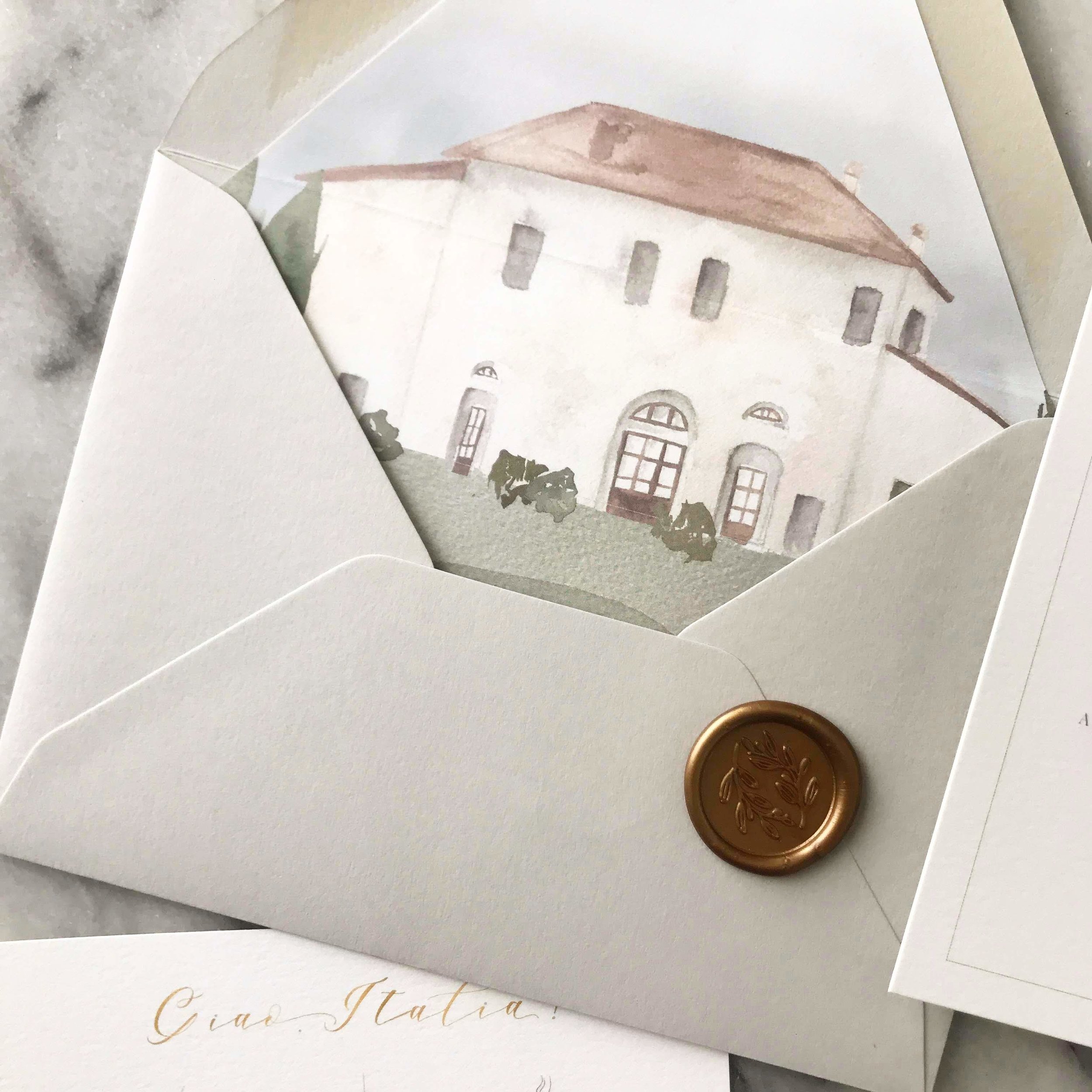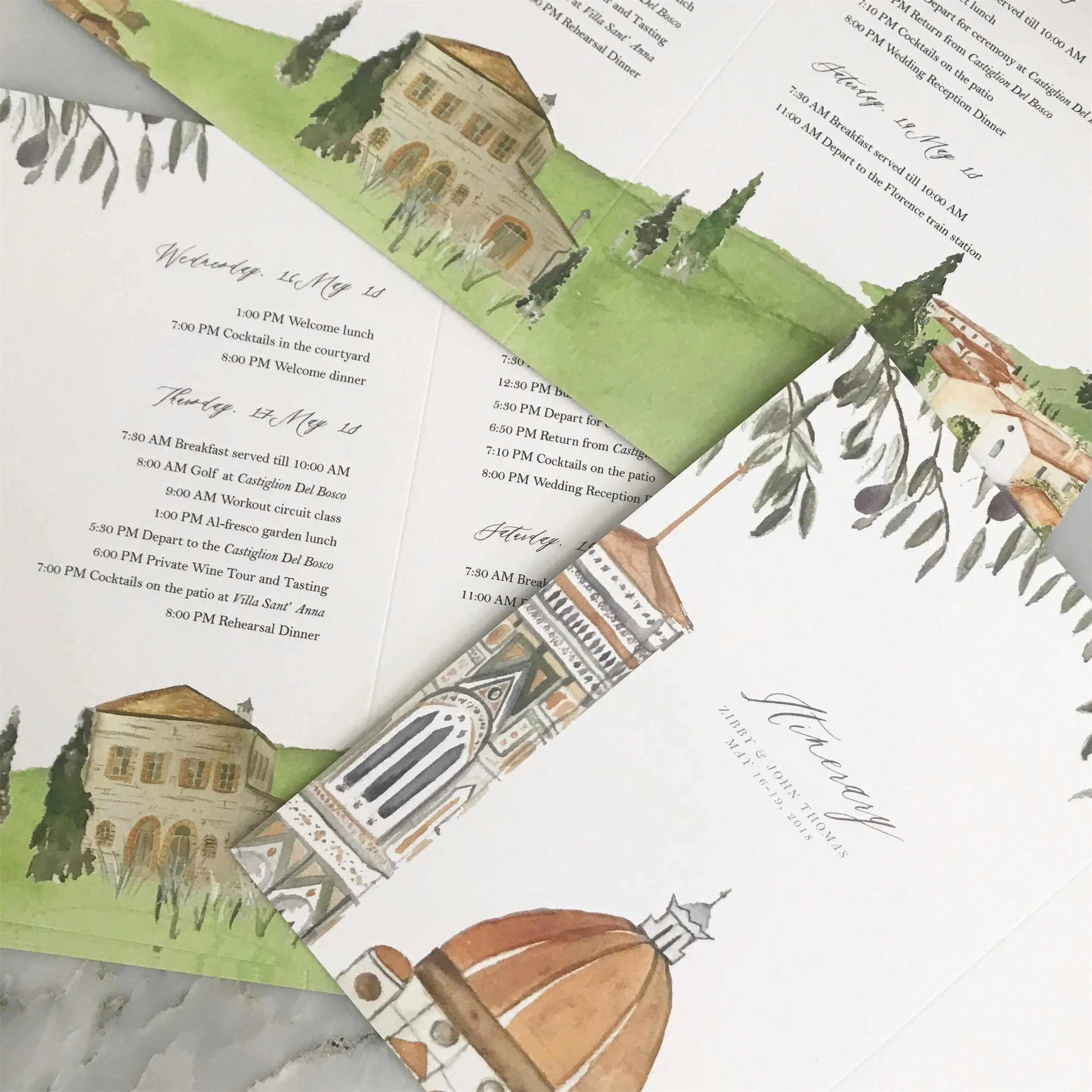Things to Consider when Planning your Destination Wedding
The hills of Tuscany, the falls of Niagara, the mountains of Chile – it is no surprise that thousands of people plan destination weddings every year. The draw is definitely there for a wedding and honeymoon all in one, plus the added bonus of cutting some of those “work acquaintances” off of your guest list! But it takes a lot of behind the scenes planning to make those glamorous photos happen! Today, we have put together a list of the some of things you need to consider when planning your destination wedding, no matter where in the world you have planned for your Big Day.

What Makes a Wedding Destination
First of all, what makes a wedding a destination wedding? This is an important question – I often have clients refer to their wedding as “destination” when it’s one state over in their hometown. You may imagine that this is very different logistically from a wedding on a remote island off of Brazil. The definition is fairly loose, but it’s only truly considered a destination wedding if the couple as well as the vast majority of guests have to travel to get to the wedding – typically, hometowns of either of the brides or grooms do not count. This doesn’t have to be international travel, but a 4+ hour drive is usually the minimum to be a destination.
I like to think of it as having “on the ground” resources vs. not. If you get married in your hometown, you can always call your mom to get advice or go check out the venue if needed. Getting married outside of your resource bubble is a whole different experience, whether it’s 5 hours away in the same state or across the world in a different country. So, onto the planning part!
Visas/Licenses

As with weddings in your own home country, you will likely need to check the destination country for any visas and licenses that you will need. Most often, if you have a destination wedding, you will need to have a civil ceremony in your home country before or after, in order to legalize the union in your own country. If you and your fiance are different nationalities, this may add another layer of confusion, so make sure you do your research and apply for any visas or licenses you may need with enough time to get through some red tape.
Hiring Vendors
Hiring your vendors is probably the hardest part of wedding planning even when you’re in the same town as all of them – add half the world in between, and things could get complicated! We definitely recommend hiring a wedding planner that is local to your wedding venue, as they will know the local vendors best and can point you in the right direction. You may not need assistance with design, but you will definitely get your money’s worth hiring a planner to ensure you get the best vendors for your Big Day! If you don’t end up hiring a wedding planner, then we always recommend working with vendors who have worked at your venue before – talk to the venue coordinator for a list of preferred vendors and start there!
Transportation
Transportation is always a tricky subject when it comes to your wedding – and another one that’s further complicated in a destination wedding. Getting your guests to and from your wedding venue (or venues!) can be a tough process when no one is familiar with the language or roads, as well as when no one has their own transportation. If you are planning a destination wedding, it is typical to budget a little more for your guests’ transportation – you are not expected to provide airport transportation, but it’s helpful to offer a ride from your hotel block to any venue(s) involved in the wedding festivities, as well as rehearsal dinner, if needed.

Invitations
Now I may be biased, but the invitations might just be the most important part of the destination wedding process. As I always say, the invitations provide your guests with a road map to your event, and with destination weddings that is a bit more literal. Make sure you send out Save the Dates as early as possible – preferably at least six months for a destination wedding – and same goes for invitations. We recommend getting your invitations out a full 8-10 weeks before your wedding (as a reminder, custom invitations typically take about 2 months for design and production)! Provide as much information as possible on the invitations – some guests may not look closely at the website, no matter how much you beg them to! Provide details on transportation, lodging recommendations, and if your guests are flying from the same place, popular flight paths are a great idea as well! We love including a little bit of information on what to do in the area, especially if your guests are likely to make a longer trip out of your wedding weekend!

Gifts
One of the benefits of a destination wedding is that people are less likely to bring bulky gifts to the wedding. This gives you freedom to be a little more picky about what you want people to give you as a gift – make sure you provide this information on your website if you’d like gifts of a certain kind. The downside of a destination wedding is that you may actually receive fewer gifts as travel to your wedding is more expensive – though the joy of traveling with your friends and family is sure to make up for this!
Customs
If you are getting married in a region or country different than your own, make sure to research and respect the customs of that area. You are enjoying the hospitality of another place, and it is important that you understand the traditions, dress codes, and appropriate actions of whichever culture you step into, so you can appreciate your Big Day without a care in the world!
Whether you are traveling on a wedding safari or down to the Florida Keys, your destination wedding will be a breeze if you plan it well and take the proper considerations. Follow our simple tips and you will have an amazing time traveling with your guests for your Special Day! Planning a destination wedding? Let us know below so we can offer our help (and daydream in jealousy, of course).
Hey, Hi, Hello!
Hi, I'm Laney!
Shop Wedding Invites
Business Resources
Watch on YouTube
I make wedding invitations and I teach artists how to work smarter, make money, and run a business that works for you.